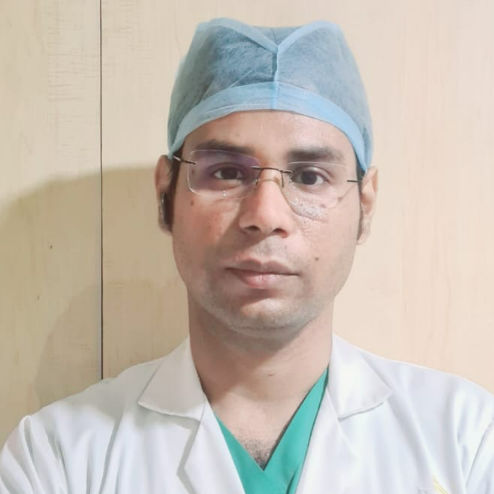Multiple Sclerosis Treatment Options Overview
Explore treatment options for multiple sclerosis (MS), including disease-modifying therapies, symptom management, lifestyle changes, and rehabilitation strategies to improve quality of life and slow disease progression.

Written by Dr. J T Hema Pratima
Reviewed by Dr. Rohinipriyanka Pondugula MBBS
Last updated on 28th Aug, 2025

Introduction
Living with Multiple Sclerosis (MS) can be challenging, but understanding your treatment options can help you manage the condition effectively. MS is a chronic disease that affects the central nervous system (brain and spinal cord), disrupting communication between the brain and the body. While there is no cure yet, various treatments can slow its progression, manage symptoms, and improve quality of life.
This guide will walk you through the different treatment approaches, lifestyle tips, and how you can seek expert care.
Understanding Multiple Sclerosis (MS)
MS occurs when the immune system mistakenly attacks the protective covering of nerve fibers (myelin), leading to inflammation and damage. This disrupts nerve signals, causing symptoms like:
Fatigue
Numbness or tingling
Muscle weakness or spasms
Balance and coordination problems
Blurred vision or eye pain
Cognitive difficulties (memory or concentration issues)
MS symptoms vary from person to person, and treatment is tailored to individual needs.
Consult Top neurologist
Treatment Options for MS
While there is no cure, several treatments help slow disease progression, reduce relapses, and manage symptoms. Below are few such treatment options,
1. Disease-Modifying Therapies (DMTs)
DMTs are medications that help slow disease progression, reduce relapses (flare-ups), and prevent new nerve damage. Some common DMTs include:
Injectable Medications (e.g., Interferon beta, Glatiramer acetate)
Oral Medications (e.g., Fingolimod, Teriflunomide)
Infusion Therapies (e.g., Ocrelizumab, Natalizumab)
Your doctor will recommend the best option based on your MS type (relapsing-remitting, primary progressive, etc.) and overall health.
2. Managing MS Symptoms
Since MS affects people differently, symptom management is crucial. Treatments may include:
Muscle Spasms & Stiffness – Muscle relaxants (e.g., Baclofen) or physical therapy.
Fatigue – Energy conservation techniques, medications (e.g., Amantadine).
Pain & Numbness – Pain relievers, antidepressants (for nerve pain), or anticonvulsants.
Bladder/Bowel Issues – Medications, pelvic floor exercises, or dietary changes.
Mood & Cognitive Changes – Counseling, cognitive rehabilitation, or antidepressants.
3. Rehabilitation & Physical Therapy
Physical and occupational therapy can help improve:
Mobility and balance
Strength and flexibility
Daily living skills
Speech therapy may also help if MS affects speech or swallowing.
4. Lifestyle & Self-Care Tips
While medications are essential, lifestyle changes can significantly improve well-being:
Stay Active – Gentle exercises like yoga, swimming, or walking can reduce stiffness and boost mood.
Eat a Balanced Diet – Focus on anti-inflammatory foods (fruits, vegetables, omega-3s) and stay hydrated.
Get Enough Rest – Fatigue is common, so prioritize sleep and take short naps if needed.
Manage Stress – Meditation, deep breathing, or hobbies can help reduce stress, which may trigger flare-ups.
Avoid Smoking & Limit Alcohol – Smoking worsens MS progression, and alcohol can increase fatigue.
5. Emerging & Alternative Therapies
Some people explore complementary treatments like:
Vitamin D supplements (low levels are linked to MS risk).
Acupuncture or massage for pain relief.
Stem cell therapy (still under research for severe cases).
Always consult your doctor before trying new treatments.
When to See a Doctor?
If you experience new or worsening symptoms like:
Sudden vision loss
Severe weakness or numbness
Difficulty walking or balancing
Uncontrolled pain or spasms
Seek medical help immediately. Early intervention can prevent complications.
How Apollo 24|7 Can Help
Managing MS requires expert care and personalized treatment plans. At Apollo 24|7, you can:
Consult neurologists specializing in MS.
Book lab tests to monitor disease progression.
Access medication delivery for convenience.
Get rehabilitation support (physiotherapy, counseling).
You can easily schedule an appointment online and get guidance from top specialists.
Conclusion
While MS is a lifelong condition, the right treatment and lifestyle adjustments can help you lead an active and fulfilling life. Stay informed, work closely with your healthcare team, and don’t hesitate to seek support when needed.
Consult Top Specialists
Consult Top neurologist

Dr. Aditendraditya Singh Bhati
Neurosurgeon
18 Years • MBBS(2004), DNB Neurosurgery(2014); MNAMS; Fellow Neuroendoscopy
Delhi
Apollo Hospitals Indraprastha, Delhi
(100+ Patients)

Dr. Ganeshgouda Majigoudra
Neurologist
10 Years • MBBS, MD ( GENERAL MEDICINE) DM (NEUROLOGY)
Bengaluru
Apollo Clinic, JP nagar, Bengaluru

Dr. E Prabhakar Sastry
General Physician/ Internal Medicine Specialist
40 Years • MD(Internal Medicine)
Manikonda Jagir
Apollo Clinic, Manikonda, Manikonda Jagir
(150+ Patients)

Dr S Selvin
Neurologist
10 Years • MBBS, MD, DM (Neurology), FINR fellowhsip in Interventional Neuro Radiology
Chennai
Apollo Speciality Hospitals Vanagaram, Chennai

Dr Debnath Dwaipayan
Neurosurgeon
9 Years • MBBS, MS(Gen. Surgery), DrNB (Neurosurgery)
Delhi
Apollo Hospitals Indraprastha, Delhi
Consult Top Specialists

Dr. Aditendraditya Singh Bhati
Neurosurgeon
18 Years • MBBS(2004), DNB Neurosurgery(2014); MNAMS; Fellow Neuroendoscopy
Delhi
Apollo Hospitals Indraprastha, Delhi
(100+ Patients)

Dr. Ganeshgouda Majigoudra
Neurologist
10 Years • MBBS, MD ( GENERAL MEDICINE) DM (NEUROLOGY)
Bengaluru
Apollo Clinic, JP nagar, Bengaluru

Dr. E Prabhakar Sastry
General Physician/ Internal Medicine Specialist
40 Years • MD(Internal Medicine)
Manikonda Jagir
Apollo Clinic, Manikonda, Manikonda Jagir
(150+ Patients)

Dr S Selvin
Neurologist
10 Years • MBBS, MD, DM (Neurology), FINR fellowhsip in Interventional Neuro Radiology
Chennai
Apollo Speciality Hospitals Vanagaram, Chennai

Dr Debnath Dwaipayan
Neurosurgeon
9 Years • MBBS, MS(Gen. Surgery), DrNB (Neurosurgery)
Delhi
Apollo Hospitals Indraprastha, Delhi



_0.webp)
